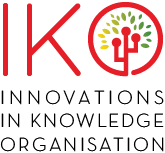Once you have completed your self-assessment, we suggest that you identify the area you are most interested in developing over the coming 6 months, and develop a simple action plan. Feel free to contact us if you have any questions or suggestions.
We will anonymise all responses and - provided you leave your email address - we'll send you a set of the findings, so that you can benchmark yourselves against others. We will not use your email address in the survey for any other purposes.

 RSS Feed
RSS Feed